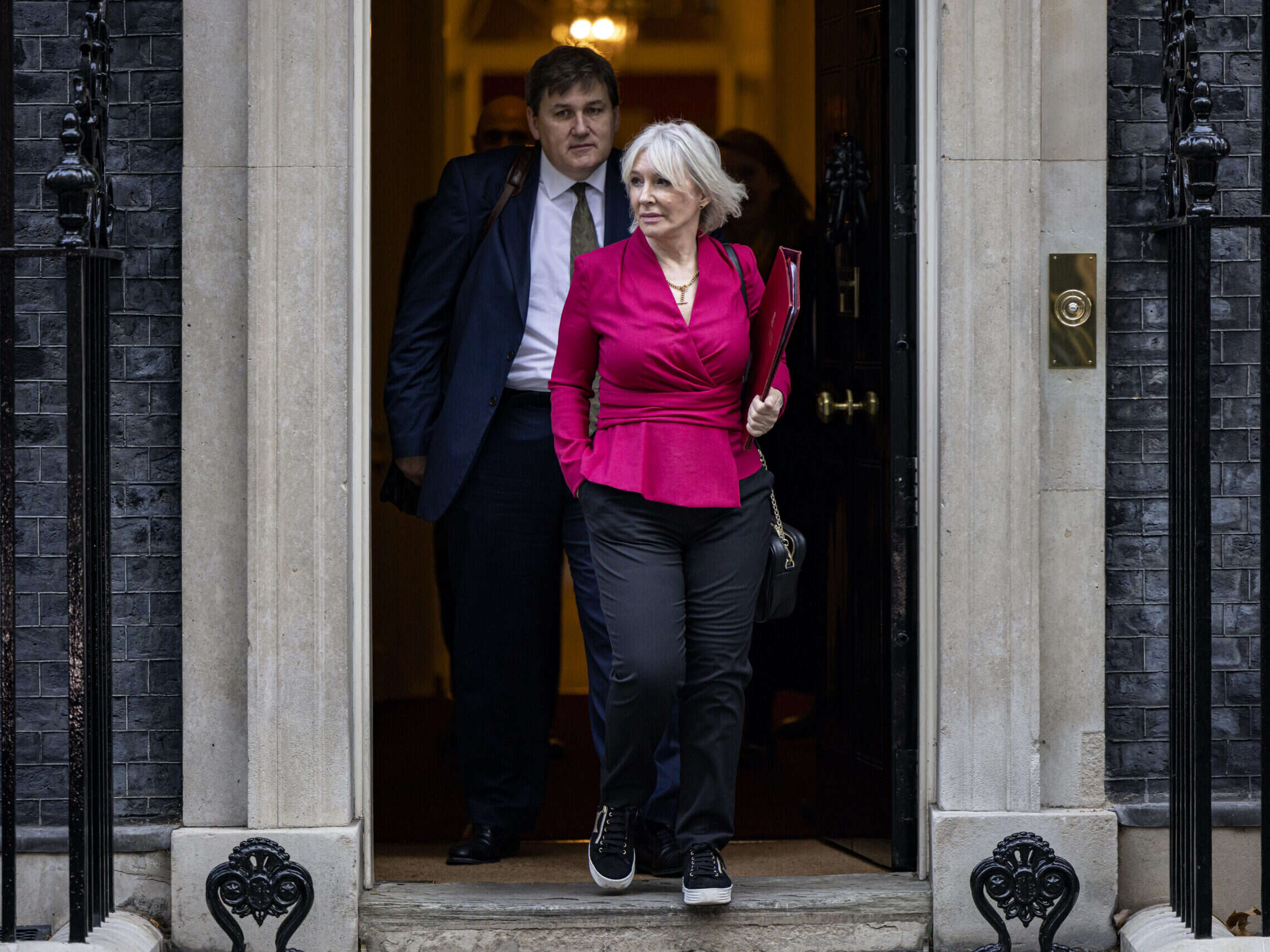
The Government’s Online Safety Bill has been introduced in Parliament, but still lacks promised protections for journalistic content.
Culture Secretary Nadine Dorries has committed to an expedited appeals process for news publishers whose content is taken down by tech platforms.
The Bill already exempts publishers from fines for false or harmful content.
But as presented, it remains possible for tech companies to take journalistic content down before justifying why it should have been removed in the first place.
And ahead of its introduction, the chair of Parliament’s DCMS committee predicted the Bill in its current form is not “anywhere near” finished.
Dorries wrote on Conservative Home on Tuesday that the Government would be adding stronger carve-outs for journalism to the Bill: “Journalists will have an expedited right to appeal if their content is removed. And I have every intention of further improving the requirements for platforms not to remove content from recognised media outlets during the passage of the bill.”
That expedition has made it into the Bill, which sets out duties “to make a dedicated and expedited complaints procedure available to a person who considers the content to be journalistic”.
But industry representatives are still waiting on the promise that platforms must not remove content from recognised media outlets at all.
Dawn Alford, executive director of the Society of Editors, said: “As recognised by the Culture Secretary, the bill does not, in its present form, do enough to protect legitimate journalistic content and further amendments must be added as a matter of priority if the government is to fulfil its manifesto pledge of defending freedom of expression.”
Owen Meredith, chief executive of trade body the News Media Association, said: “It is vital these commitments translate into a robust and workable exemption on the face of the Bill at the earliest possible opportunity. We will monitor the progress of the Bill closely as it makes its passage through Parliament.”
Julian Knight MP, chair of Parliament’s DCMS Committee, said regarding the Bill: “The impact of the spread of disinformation during the Russian invasion of Ukraine is just the most recent example of the damage that can be caused when fake news is left unchallenged and reaffirms the need for protections for quality information.
“One proactive step the Government could take is ensuring that bona-fide news publishers, who are committed to the highest journalistic standards and codes of practice, are able to get redress where tech companies have moderated their content.”
Knight told The New Statesman he knew many politicians who want to alter the bill: “I would think this will be a bill which will have many, many amendments put on it over time. So I don’t think we’re anywhere near the finished article, yet.”
As presented to Parliament on Thursday, the Bill says that a “harmful communications offence” or “false communications offence” cannot be caused by a recognised news publisher, the provider of an on-demand programme service or the holder of a licence under the Broadcasting or Wireless Telegraphy Acts.
Among the requirements for a “recognised news publisher” is that an outlet be subject to a standards code, that it has a registered office in the UK and that it publishes the name and address of any person who controls it.
Lexie Kirkconnell-Kawana, head of regulation at press regulator Impress, said: “there are loopholes within the exemption that could potentially be exploited.
“Under the current definitions, anyone can set up a so-called ‘news website’ to publish harmful content by simply copying and pasting a standards code and complaints policy.
“This prioritises the rights of these unregulated sites over the rights of the public to be protected from harm. Recognising the potential for public harm, IMPRESS has been working since its inception to bring unregulated news websites into publicly accountable oversight. The law could go further to encourage publishers to follow suit.”
Although the Bill still lacks the strongest amendments promised for journalism, the government revealed that the law had been altered to increase pressure on tech companies to release information quickly.
Previously, the legislation proposed that tech executives could be prosecuted if their companies failed to hand information to Ofcom, beginning two years after the Bill’s passage into law. That amnesty period has been reduced to two months.
In December 2020 DCMS said that news content would be protected from Ofcom’s new powers, granted in the Online Safety Bill, to fine platforms failing to address misinformation.
But the Joint Committee on the Bill said a year later that the draft law still lacked protection for publishers.
And the DCMS Select Committee argued in a report in January that it had “urgent concerns that, as currently drafted, the Bill neither adequately protects freedom of expression nor is clear and robust enough to tackle the various types of illegal and harmful content”.
Picture: Rob Pinney/Getty Images
Email pged@pressgazette.co.uk to point out mistakes, provide story tips or send in a letter for publication on our "Letters Page" blog
